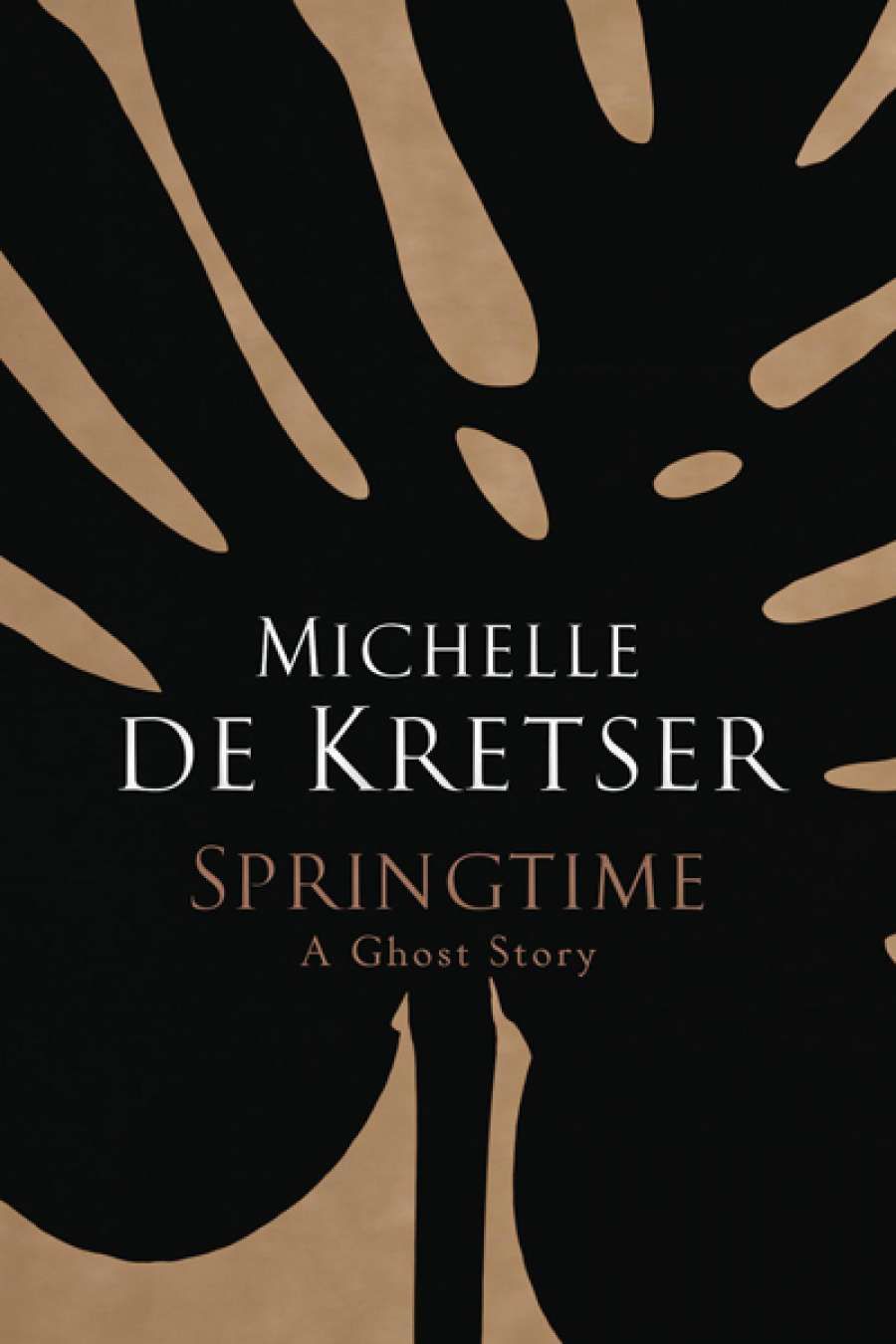
- Free Article: No
- Contents Category: Fiction
- Custom Article Title: Francesca Sasnaitis reviews 'Springtime' by Michelle de Kretser
- Review Article: Yes
- Article Title: A Ghost Story
- Online Only: No
- Custom Highlight Text:
Anyone who has lived in Sydney’s inner west will recognise the terrain of Springtime: gardens redolent of mystery and decay, shabbiness, unexpected vistas, and streets that Michelle de Kretser describes as running ‘everywhere like something spilled’.
Frances has moved to Sydney with Charlie, who has left his wife and son Luke behind in Melbourne. Luke’s occasional visits fuel Frances’s uncertainty with intimations of a shared family history from which she feels excluded. She walks Rod, the timid dog she rescued from the pound, and muses on the vagaries of her situation, her fears and failings.
- Book 1 Title: Springtime
- Book 1 Subtitle: A ghost story
- Book 1 Biblio: Allen & Unwin, $14.99 hb, 92 pp
Frances is writing a book about objects in eighteenth-century paintings. Her descriptions of walks through Marrickville, and the secret gardens that back onto the Cooks River path, border on the baroque: ‘Flowers yawned, bronze-leaved cannas, lilies striped cream and red. Nasturtiums swarmed over palings. A heavy-headed datura flaunted orange trumpets that darkened at the rim.’ In the dappled shadows of one such luxuriant garden, Frances catches her first glimpse of a pale woman with a bull terrier. Frances is always alone with Rod, who for once is not afraid, when the woman in the old-fashioned pink frock and her dog appear, as if they exist in a vacuum, suspended in time, ‘at an angle to life’.
De Kretser is a crafty storyteller. Disquiet creeps up on us with the accumulation of seemingly innocuous digressions and explanations. ‘What people don’t pay attention to changes the story,’ says Charlie, providing us with one of many clues to unravelling Springtime. Between the elegantly designed covers of this taut novella, every sentence is loaded with portent. Ghosts might well be ‘the result of smells which trigger fear in the brain’, but what we also learn is that contemporary spectres are benign and necessary figments of loss, and a desire to halt the passage of time.


Comments powered by CComment